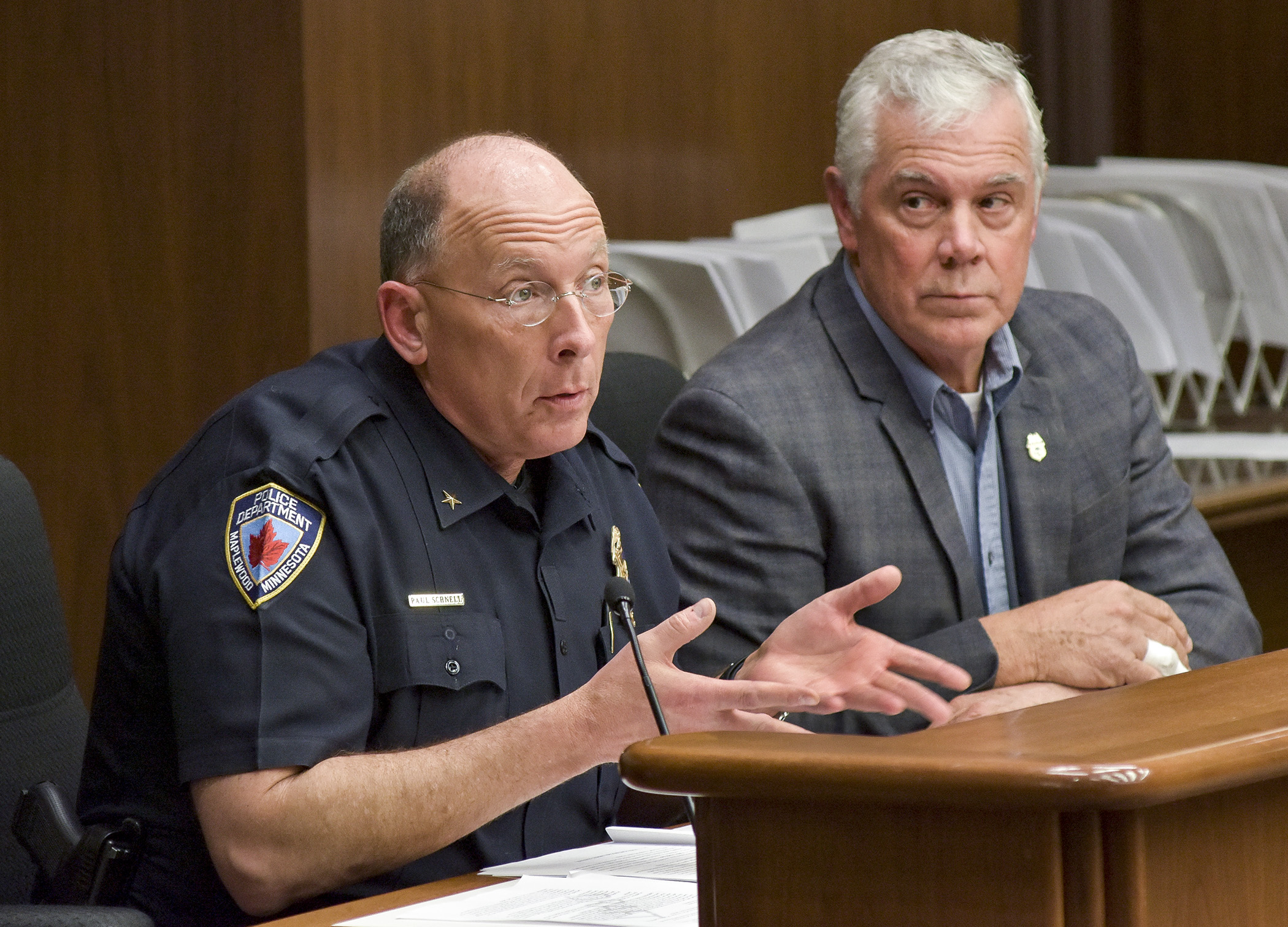Controversial body cam bill remains in contention

How far should law enforcement officers go to balance personal privacy and public transparency when handling video recording data that deals with possible criminal complaints?
That is the question hoping for clarity through HF430/SF498*, the heavily-debated Police “Body Cam and Portable Recording Devices” bill.
Sponsored by Rep. Tony Cornish (R-Vernon Center) and Sen. Ron Latz (DFL-St. Louis Park), the bill would establish data practices and regulations governing portable recording devices which police officers would be equipped with. In the process, it would also establish data retention, violation and internal audit guidelines.
Approved by the House Civil Law and Data Practices Committee Tuesday evening on an 11-2 roll-call vote, it now heads to the House Public Safety and Crime Prevention Policy and Finance Committee, where it is expected to be heard Wednesday.
It was passed 47-14 by the Senate May 2.
“We need to get a handle on this, and now,” said Rep. Brian Johnson (R-Cambridge). “We’ve been talking about this for many years. There are things in the bill I don’t care for, but overall I support this bill.”
“I personally think that this bill should be laid over so it can be worked on further,” said Rep. John Lesch (DFL-St. Paul).
The bill was originally introduced as an amendment to a bill regarding automated license-plate reader data in 2013. It has faced a contentious battle ever since.
“As a state, we are all struggling with the mass amounts of data we are collecting and how to manage it,” said Maplewood Police Chief Paul Schnell. “This is what communities are demanding.”
The bill would make notable clarifications between the classifications of arrest, incident, criminal investigation and public benefit data. Criminal investigation data would be private, whereas public benefit data would be private data that could be released to the public “if doing so would aid law enforcement’s process or promote public safety.”
It would also define how a member of the public could request said data, and under which circumstances it could be granted and denied.
“Non-incident” data involving non-emergencies would generally be private, but could be made public if “a peace officer’s use of force results in substantial bodily harm.” Subjects in these instances could request to be redacted if practicable. Active criminal investigation data would be confidential, but a court could authorize its release after “considering whether the benefit to the person seeking its release outweighs harm to the public, to law enforcement, or the data subject.” Officers would be allowed to review any footage prior to filing a report on an incident.
“This creates constitutionality and fourth amendment issues,” said citizen activist Rich Neumeister. “This is a powerful investigation surveillance tool which will change the nature of policing. The data is the document in the 21st century.”
Concerns arose over numerous portions of the bill regarding recording consent on private property, as well as accountability and transparency for those recording and handling the footage.
“I’m surprised this one-sided bill has made it this far in the Legislature. If a bill is going to be passed, it needs to strike a balance between privacy, accountability and enforceability at a time when trust is at an all-time low,” said Nekima Levy-Pounds, president of Minneapolis chapter of the NAACP.
“The threshold for which the data doesn’t become available is much too high. Beyond that there is too much discretion for local law enforcement to set their own policies. Communities of color will face additional harm if this bill should pass; their voices have not been heard in this process even though they have faced the brunt of excessive police force in public.”
“Throughout the bill there is a lot of broad interpretation to put the citizens and public at the lower end, so it is very hard to get accountability and transparency,” Neumeister said. “The details in this bill do matter… This is a very comprehensive bill that needs to be discussed further and is not ready at this point in time.”
Levy-Pounds questioned whether the bill would benefit the public, or would simply be used as another surveillance tool for law enforcement, also questioning the vagueness of terms such as “substantial bodily harm.”
Related Articles
Search Session Daily
Advanced Search OptionsPriority Dailies
Ways and Means Committee OKs proposed $512 million supplemental budget on party-line vote
By Mike Cook Meeting more needs or fiscal irresponsibility is one way to sum up the differences among the two parties on a supplemental spending package a year after a $72 billion state budg...
Meeting more needs or fiscal irresponsibility is one way to sum up the differences among the two parties on a supplemental spending package a year after a $72 billion state budg...
Minnesota’s projected budget surplus balloons to $3.7 billion, but fiscal pressure still looms
By Rob Hubbard Just as Minnesota has experienced a warmer winter than usual, so has the state’s budget outlook warmed over the past few months.
On Thursday, Minnesota Management and Budget...
Just as Minnesota has experienced a warmer winter than usual, so has the state’s budget outlook warmed over the past few months.
On Thursday, Minnesota Management and Budget...